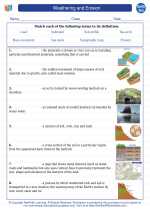Supercooling
Supercooling is the process of cooling a liquid below its freezing point without it solidifying. This can occur when the liquid is pure and free from any impurities or when it is cooled very slowly, allowing it to remain in a liquid state at temperatures below its freezing point.
How Supercooling Occurs
When a liquid is cooled below its freezing point, it may not immediately solidify because there are no nucleation sites for crystallization to begin. As a result, the liquid remains in a supercooled state until it is disturbed or a nucleation site is introduced, causing it to rapidly solidify.
Real-Life Examples
Supercooling can be observed in nature, such as when water droplets in clouds remain in a supercooled state until they come into contact with a nucleation site, causing them to freeze and fall as snow or ice pellets.
Study Guide
When studying supercooling, consider the following key points:
- Define supercooling and explain the conditions under which it can occur.
- Describe the process of nucleation and its role in the solidification of supercooled liquids.
- Discuss real-life examples of supercooling and its significance in atmospheric processes.
- Compare and contrast supercooling with other phenomena, such as superheating and supersaturation.
- Explain the potential applications of supercooling in technology and materials science.
◂Earth Science Worksheets and Study Guides High School. Weathering and Erosion
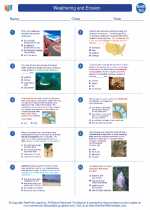
 Worksheet/Answer key
Worksheet/Answer key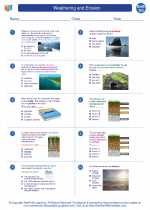
 Worksheet/Answer key
Worksheet/Answer key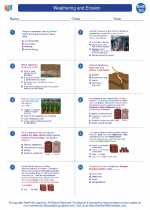
 Vocabulary/Answer key
Vocabulary/Answer key
 Vocabulary/Answer key
Vocabulary/Answer key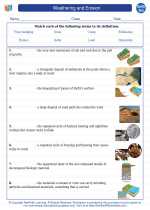
 Vocabulary/Answer key
Vocabulary/Answer key